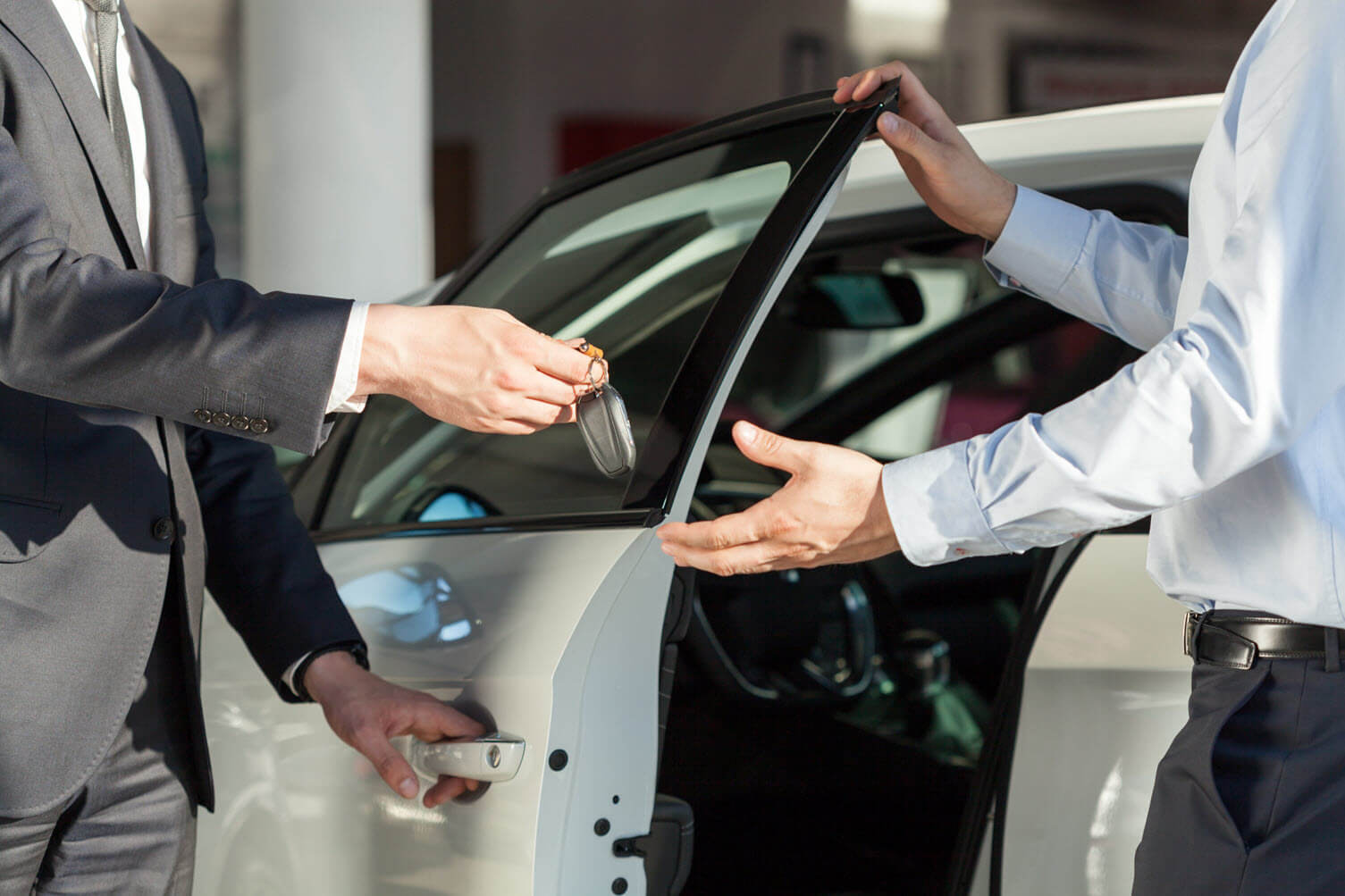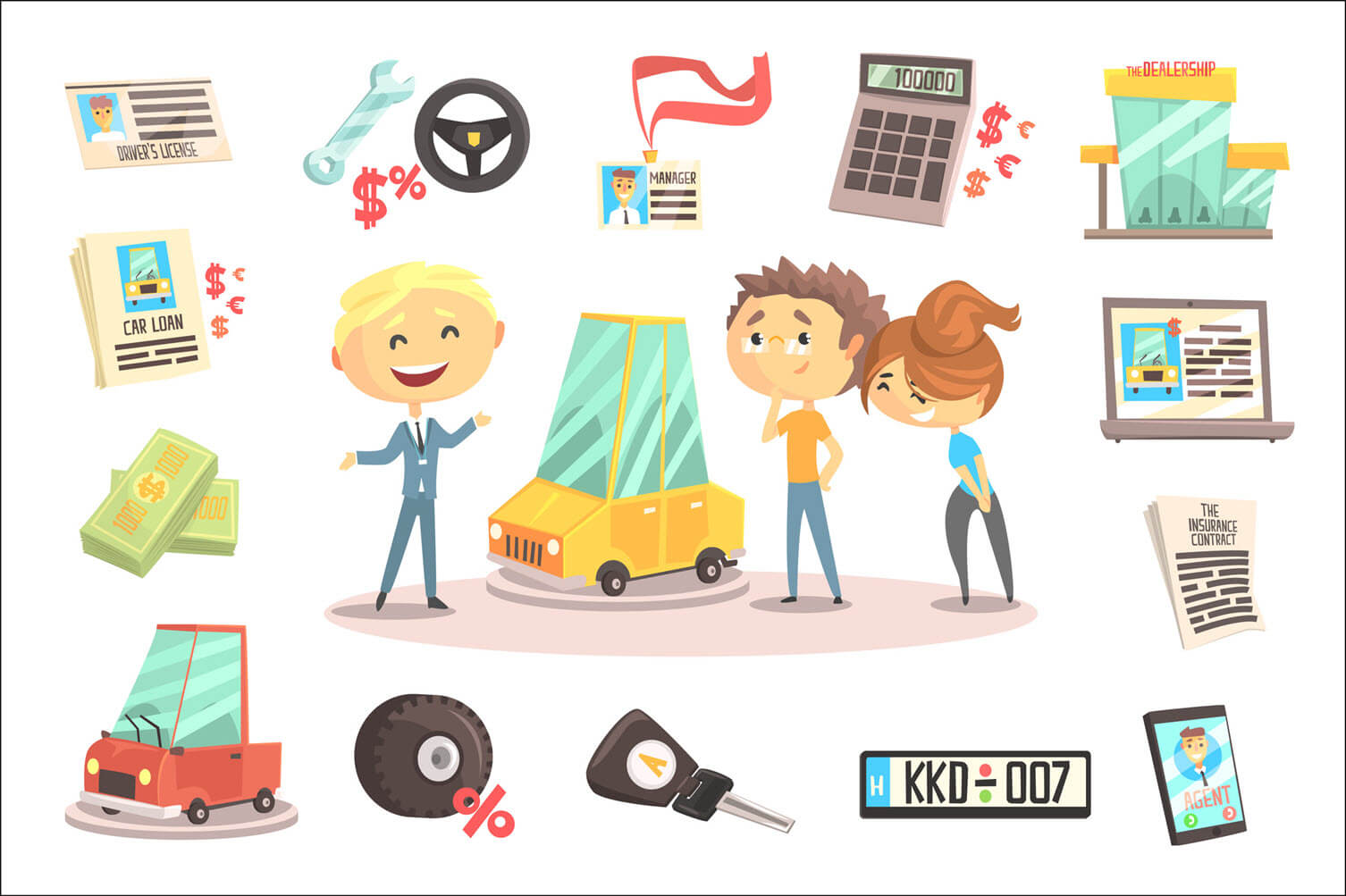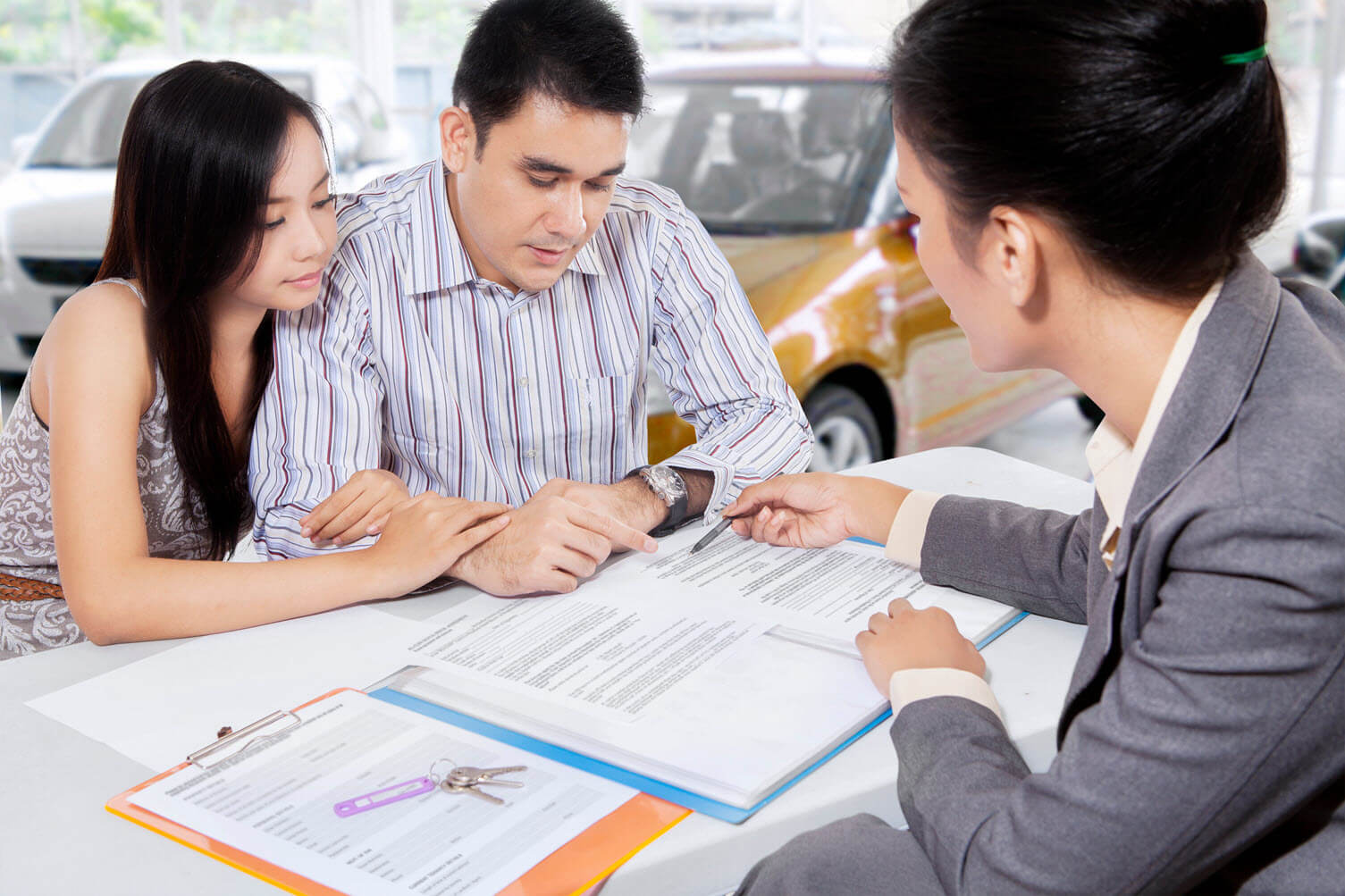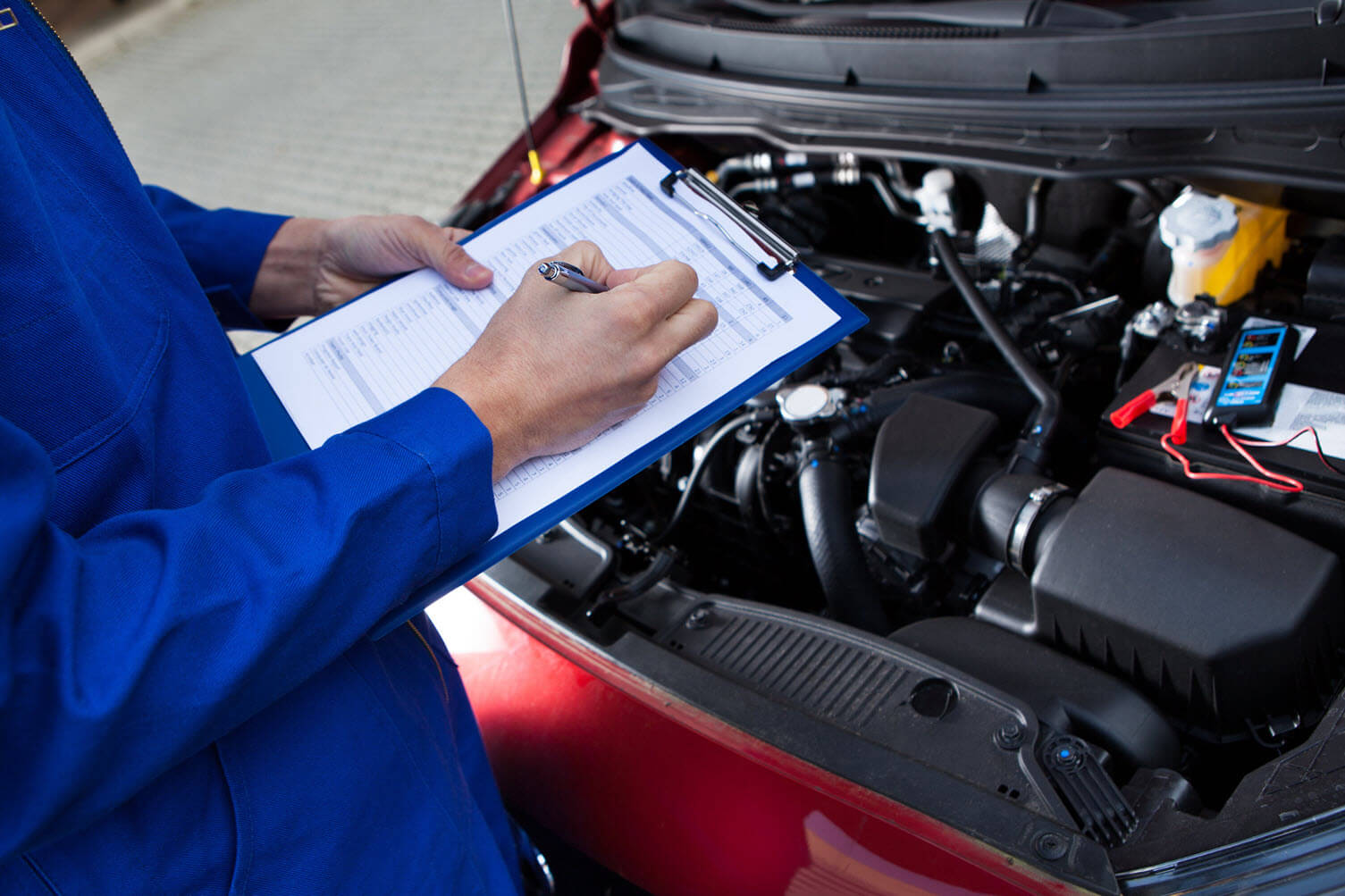Buying a Car in Malaysia? Here are 11 Things to Consider

Buying a car involves a lot of decisions, especially if you're a first-time buyer, and it doesn't end when you buy one. Car buyers spend a lot of time conducting research, which can take weeks or even months.
The factors that can influence which car you buy include brand, model, variant, new or old, price range, and fuel consumption. There is also a wide range of models available to choose from, which is why selecting the right car can be overwhelming.
To help you make an informed purchase, we've broken it down into a handy guide below. We have separated the process into three parts: research, purchase, and post-purchase.
Part 1: The Research Phase

Finding the right car
Your first step is to determine the type of car you need according to your personal needs. You might be searching for a family vehicle or require a car to travel long distances for work.
Next, do your research and separate the features into must-haves and nice-to-haves. For example, the requirement for a minimum number of seats, or fuel efficiency, would be "must-haves." Features such as a built-in GPS or leather seats are "nice-to-haves."
Check which safety features are industry-standard and which ones are necessary for you. Ensure the car you buy has a high resale value as well, as you might want to trade up in the future.
Vehicle owners cannot avoid fuel expenses, so choose a vehicle with good fuel economy to save money over the long run. Several factors can affect fuel economy, including the compression ratio, engine type, and driving habits. Your ideal car should offer a lot of value for your money. Model X, for example, can get up to 22 km/L, while Model Y gets up to 18.4 km/L. That additional cost adds up over time.
Also, weigh the pros and cons of getting a local brand versus a foreign brand. Foreign brands will likely be more expensive due to high excise taxes, but some may have the extra features that you're looking for.
Should you get a new or used car?
Your budget and what you want in a car will largely determine what you buy. You can save money upfront when you buy a used car, but make sure the car is in a good condition.
Secondhand cars can sometimes have problems that aren't immediately apparent, so it's essential to check their history, condition, and background. You would be better off purchasing a new car in the long run than repeatedly repairing a used one.
To get a good deal on a used car:
- Go for one with low mileage and newer because the parts have deteriorated less.
- Ask for the vehicle's service log to ensure that a car has consistently been serviced and inspected.
- Inspect the car's engine, interior, and exterior.
There are, of course, advantages to buying a new vehicle. It comes with a clean history and is free of wear and tear issues. Also, new cars often come with a factory warranty and free maintenance for a certain period, so you can save on paying service fees.
Setting your budget & price range
When you've decided what features you need, the next thing to consider is the price range, probably one of the most critical factors. Based on your income, what kind of car can you afford to buy? The rule of thumb is that the car price should equal or be less than your annual gross income.
Take a look at your finances to see if you can afford a car in that price range. You don't want to struggle to pay your monthly instalment.
It is not just the price of the car on paper that determines the cost of buying a car, as there are other expenses to be considered. Along with the monthly payment, you also have to factor in your road tax, insurance, maintenance fees, petrol, parking, and toll fees.
Here are some of the estimated annual expenses you'd probably incur if you are based in KL and you buy a car that costs around RM50,000 and has a 1,329cc engine:
Road tax: RM70
Motor insurance: RM1,300
Service and maintenance fees: RM1,000
Petrol: RM2,400
Parking: RM2,160 (RM180 per month)
Tolls: RM1,200 (RM100 per month)
Test driving the car
Now that you've shortlisted a few cars that fit your budget and needs, you should check online reviews to narrow down your choices further. Then, you can take the cars for a test drive to see how they perform on the street. Even if the reviews online are positive, it's important to test out the car to experience it yourself.
For a firsthand look at a vehicle, visit your local dealership and, if you are interested in it, contact the dealer to arrange a test drive. You should check the seats, blinkers, steering wheel, clutch, accelerator, and brakes during your test drive. Ultimately, you will want to see how the car handles and its performance on highways and slip roads, as well as parking. As the sales representative will be coming with you for the test drive, this is the best time to ask the sales representative any questions about the car.
You may want to bring along a family member or friend who has experience evaluating cars.
Shopping around for the best prices and deals
Whether you're looking for a new or used car, many Malaysian dealerships offer a wide range of vehicles. Make sure you only buy from authorised dealers and those with an excellent reputation to avoid being ripped off.
For more value for money, check out their official websites for information or upcoming promotions. Contact your dealer to see if they can sweeten the deal further by throwing in some free upgrades to your car.
Make a note of all your concerns and ask the sales representative. If you are buying a used car, it is vital to determine its history before signing the contract.
Knowing the current market price of the vehicle will help you avoid scams and negotiate a better deal. You can find the latest market rate on many websites, such as Oto and Motor Trader. Also, be wary of deals that sound too good to be true.
Evaluating financing options
You have finally decided which car you want to purchase, but before you can drive it home, let's discuss your financing options. The most common way to pay for a car is with cash or through a car loan.
There are pros and cons with both financing options. If you decide to pay cash, you don't have to worry about paying interest on your loan but few people can afford to take out such a large sum of money.
If you decide to take a car loan, compare interest rates across different banks. Interest rates usually range between 2% and 4%, depending on the Base Rate (BR) set by Bank Negara Malaysia (BNM).
There will usually be a down payment of 10% of the car's price for new cars, but if you are able, put down 20% or more to reduce the loan amount. Note that for used cars, you will need to pay a 20% down payment. The longest period allowed for a hire purchase loan in Malaysia is nine years, with the lowest monthly payment, but it costs you more in the long run.
As a result, it would be prudent to limit the term to five years and not go beyond that. So if possible, keep your loan term short to save on the interest.
Part 2: Purchasing The Car

Gathering necessary documents
Here are some important documents you will need:
- For Malaysians
- NRIC
- Valid driving licence (you cannot buy a car without a licence)
- The latest three months' payslips
- The latest three months' bank statements reflecting your credit>
- Income tax / Employees Provident Fund (EPF) statement
- For foreigners
- Passport
- Valid driving licence
- Work permit, if you're taking out a loan
- The latest three months' payslips
- The latest three months' bank statements
- Letter from employer
- EPF statement
The documents can be given to your car dealer, as they will handle all the paperwork and arrange for delivery of your car.
Here is how your sales representative can assist:
- Apply for the road tax
- Register the car with the Road Transport Department
- Apply for car insurance
- Apply for a loan
- Registering and getting your car number plate
Car insurance and road tax
To drive a car in Malaysia, you need valid motor insurance and road tax. It is illegal to drive with expired insurance or road tax, so both must be renewed annually.
Car dealers are likely to recommend insurance policies that you can choose from. As an alternative, you can also choose to purchase your coverage through your favourite insurer.
At Kurnia, we offer a variety of plans based on your individual needs, with optional add-ons to complete your protection. You can also purchase or renew your road tax in one convenient transaction.
Part 3: Post-Purchase

Run-in period
Congrats! You've finally got your new car! There is still the run-in period to consider, and you need to get the vehicle adjusted to your driving style.
Generally speaking, the run-in period (break-in period) for new cars is the first 1,000 kilometres. This period is vital for you to ensure that your car lasts and runs well since it is the best time for all the parts to adjust to one another, such as the engine, brakes, and tyres.
The car must be driven carefully during this period without exceeding the speed limit. The break-in period for each car differs slightly, and you should refer to the instruction manual for more details. It is vital to drive safely and sensibly while you are breaking in your car.
Make a note of anything wrong during this time, and get it fixed during your 1,000km appointment while your car is still under warranty.
Maintenance and servicing
Car ownership costs include service and maintenance charges, which are essential to making your vehicle last a long time.
Schedule regular maintenance so your car can function at its best. In many cases, dealers offer free servicing and warranty for new cars for several years, so you won't have to worry about fees during the first few years.
Ongoing Safety
It's also essential to keep your insurer's hotline handy in case of an accident. With a Kurnia comprehensive policy, you can call our hotline at 1 800 88 3833 for 24/7 roadside assistance if you experience a breakdown or accident. You can also download the One Touch app, which includes an SOS button so that you can get help with just one click.
Lastly, make sure you drive safely with your new car in Malaysia and abide by the traffic rules.
Disclaimer: This blog post is strictly for informational purposes, and should not be taken as advice of any kind. Kurnia disclaims all responsibility for any losses resulting from reliance on the information contained in this article.